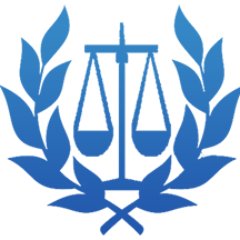DISCIPLINARY PROCEEDINGS AND JUDICIAL INDEPENDENCE

First Study Commission of the International Association of Judges (“IAJ”) – 2022
“DISCIPLINARY PROCEEDINGS AND JUDICIAL INDEPENDENCE”
CONCLUSIONS
I. General Principles 1. Judicial independence is a fundamental pillar of the rule of law. Judicial independence is the ability of judges to make decisions fairly and impartially without fear of unfair punishment and without intimidation or other improper influence.
2. Disciplinary proceedings may be justified in order to ensure that judges maintain proper standards of conduct, thereby fostering public confidence in the judiciary.
3. Disciplinary proceedings may bring with them the risk of being abused to the detriment of judicial independence.
4. Many judges from different countries and legal systems reported concerns about the misuse of disciplinary proceedings in order to intimidate judges in their country. Such abuse is in conflict with the principle of judicial independence, and thus with the rule of law. Disciplinary proceedings should not be used as an instrument of retaliation or intimidation against a judge, and nor should they be used to influence judges’ decisions.
5. Any disciplinary system should provide the necessary guarantees to ensure that it does not negatively affect judicial independence. Taking into account the different legal systems and traditions across the world, there is not a uniform concept of disciplinary proceedings that would apply in each country.
II. Disciplinary Proceedings Related to the Professional Conduct of a Judge
6. The official conduct of a judge may give rise to disciplinary proceedings. However, the content of the decisions taken by judges should be excluded from the disciplinary process, and judges generally cannot be charged criminally for the content of their decisions. The proper avenue for challenging the content of a judge’s decision is an appeal to a higher court, not through the disciplinary process.
7. In many countries, the concept of judicial immunity serves to protect judges from disciplinary sanctions related to the content of their decisions.
8. In some legal systems, an exception to this rule applies if judges intentionally misapply the law in bad faith in favour of or to the detriment of a party. However, the principle of judicial independence requires that this exception be applied with the utmost care.
III. Disciplinary Proceedings Related to the Personal Life of a Judge
9. Whether or not the private conduct of a judge may provide grounds for disciplinary sanctions differs widely among jurisdictions.
10. Behaviour that is not related to the professional conduct of a judge may give rise to disciplinary sanctions if it has the potential to harm the public trust into the judiciary as a whole or the impartiality of the judge concerned. Generally, the commission of a crime by a judge may be subject to disciplinary sanctions.
11. Any disciplinary action against judges related to their private conduct should carefully take into account the individual rights of the judge.
IV. The Body Responsible for Disciplinary Proceedings and Sanctions
12.There are numerous models for the bodies responsible for initiating or deciding disciplinary proceedings against judges. Some consist entirely of judges, others consist of judges and non-judges. Many countries do not have specific bodies, but instead rely on a regular court procedure, or special tribunals consisting of high-ranking judges.
13. Which model is preferable depends to a large extent on the legal system of a country. However, in order to guarantee judicial independence, the composition of a body responsible for initiating or deciding disciplinary proceedings against judges should not allow the exertion of undue influence on judicial decision-making, be it from the other state powers, or from other actors outside the judiciary. For this reason, such a body should not consist entirely of non-judges.
V. Disciplinary Sanctions
14. In any legal system, a sensible range of disciplinary consequences with different intensity should be available in order to guarantee the proportionality of the sanction to the nature of the allegation. These consequences should not be limited to sanctions only, but also include informal counselling, educational training and opportunities for rehabilitation where appropriate.
15. In some cases, an informal discussion with the judge about the conduct in question may be sufficient to resolve issues without the need to initiate formal disciplinary proceedings.
VI. Fair Trial and Due Process
16. Principles of fair trial and due process include at a minimum a notice of the allegation; a right to respond; a right to involvement in the proceedings; a right to examine evidence; a right to present evidence; a right to counsel; a hearing; the presumption of innocence; and a right to appeal or judicial review.
17. In accordance with these principles, the disciplinary process should be clearly set out in writing and applied correctly by the responsible body.
VII. Recent Developments
18. Some countries across different jurisdictions reported serious concerns with recent changes in the disciplinary regime of their country in order to intimidate individual judges and the judiciaries as a whole which creates a chilling effect.
19. Any such abuse of disciplinary proceedings is a threat to judicial independence and thus undermines the rule of law. It should not be permitted.


